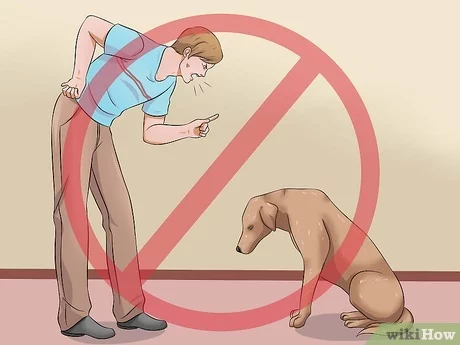Why Is My Dog Crying At Night
Why Is My Dog Crying at Night? Understanding the Causes and Solutions for Nocturnal Whining
Dogs are known for their loyalty, affection, and protective instincts, but sometimes they can also be a source of frustration, especially when they cry or bark at night. If you are a dog owner who has been awakened by your furry friend’s nocturnal whining, you may wonder what is causing this behavior and how to stop it. In this article, we will explore some of the possible reasons why dogs cry at night and offer some tips on how to address each one.
Firstly, it is important to note that not all dogs cry at night for the same reason. Some may do so because they are in physical pain or discomfort, such as from an injury, illness, or aging. Others may cry because they are anxious or fearful, due to separation anxiety, socialization issues, or traumatic experiences. Still others may cry because they are bored or restless, lacking sufficient exercise or mental stimulation during the day. By understanding the underlying cause of your dog’s crying behavior, you can better tailor your response to it.
To help you diagnose why your dog is crying at night, here are some common factors that may contribute to this behavior:
– Health issues: Dogs that are in pain or discomfort may vocalize more frequently and intensely than usual. They may also exhibit other signs of distress, such as limping, panting, drooling, vomiting, or diarrhea. If you suspect that your dog’s crying is related to a health problem, you should take them to the vet for a checkup and treatment.
– Hunger or thirst: Dogs that have not eaten enough or drunk enough water during the day may wake up hungry or thirsty at night and ask for food or water by whining. To prevent this from happening, make sure your dog has access to fresh water and food throughout the day and right before bedtime.
– Need to go potty: Dogs that need to relieve themselves may cry at night to alert their owners. If your dog is not yet housetrained, you should take them out for a potty break before bedtime and after they wake up in the morning. If your dog is already housetrained but still cries at night, you may need to adjust their feeding and drinking schedule or train them with a bell or a doorbell to signal when they need to go outside.
– Separation anxiety: Dogs that have separation anxiety may cry, bark, howl, or scratch at doors or windows when left alone at night. This behavior can be triggered by various factors, such as changes in routine, moving homes, or being adopted from a shelter. To help your dog cope with separation anxiety, you can try desensitization training, which involves gradually increasing the time and distance of your absence while rewarding calm behavior. You can also provide your dog with toys, treats, or music that can distract them from their anxiety triggers.
– Fear of noises or stimuli: Dogs that are afraid of loud noises or unfamiliar sights may cry at night when they hear or see something that scares them. This behavior can be worsened by thunderstorms, fireworks, construction work, or other external events that are beyond your control. To help your dog feel safer and more secure at night, you can create a den-like space for them with comfortable bedding and familiar smells. You can also use white noise machines, earplugs, or curtains to muffle sounds and block out light.
– Lack of exercise or stimulation: Dogs that are bored or understimulated during the day may become restless and seek attention at night by crying. This behavior can be prevented by providing your dog with enough physical exercise and mental stimulation throughout the day. You can take your dog for walks or runs in the park, play fetch or tug-of-war with them, or give them puzzle toys or interactive games that challenge their cognitive skills.
Now that you have a better idea of why your dog may be crying at night, here are some tips on how to stop this behavior:
– Rule out health issues: If you suspect that your dog’s crying is related to a medical condition, take them to the vet for diagnosis and treatment. Your vet may prescribe medication or recommend lifestyle changes to improve your dog’s health and well-being.
– Establish a routine: Dogs thrive on routine and consistency, so try to establish a regular schedule for feeding, walking, playing, and sleeping. Stick to the same time and place for these activities as much as possible, and avoid sudden changes that can confuse or upset your dog.
– Provide comfort: Dogs that cry at night may need extra comfort and reassurance from their owners. You can cuddle with your dog, pet them gently, or offer them a favorite toy or blanket that smells like you. However, avoid rewarding crying behavior by giving in to your dog’s demands or reinforcing their anxiety.
– Train your dog: Dogs that cry at night can benefit from training that teaches them alternative behaviors or coping mechanisms. For example, you can teach your dog to stay calm when left alone by gradually increasing the duration of their confinement and rewarding good behavior. You can also teach your dog commands like “quiet” or “stay” that help them control their vocalizations and movements.
– Seek professional help: If your dog’s crying at night persists despite your best efforts, consider seeking help from a professional trainer or behaviorist who specializes in canine anxiety disorders. They can assess your dog’s needs and develop a customized plan for addressing their specific issues.
In conclusion, dogs cry at night for various reasons, but they all share one thing in common: they want attention and care from their owners. By understanding what causes your dog’s crying behavior and responding to it appropriately, you can strengthen your bond with your furry friend and improve their quality of life. So next time your dog cries at night, don’t get frustrated or angry, but rather listen to what they are trying to tell you and take action to make them feel better. After all, a happy dog makes for a happy owner!



